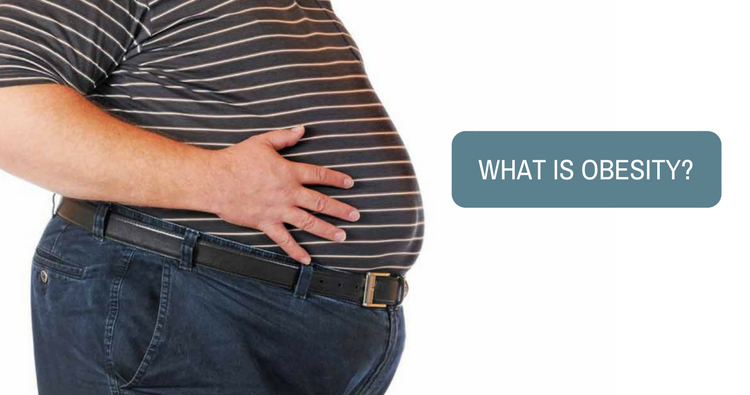Is there a permanent cure for Erectile dysfunction?
What is erectile dysfunction?
Erectile dysfunction is basically a disorder found in men which could be a sign of physical or psychological condition. The symptoms associated with this disorder is found in men’s reproductive organ i.e. inability to keep an erection firmer and longer enough during a sexual activity.
There are many men who experience erectile dysfunction occasionally because of stress, fatigue, alcohol, or emotional issues, but 25% of men have recurring episodes of the disorder. People dealing with erectile dysfunction will be:
- Unable to achieve erection at anytime needed.
- might achieve erection sometime but not when needed like during sexual activity.
- might able to achieve erection when needed but not long enough
Causes of Erectile dysfunction
There are many factors involved in male sexual arousal, including hormones, emotions, nerves, muscles, and the blood vessels. There are a number of factors that can contribute to erectile dysfunction. It is also possible for erectile dysfunction to be caused or worsened by stress and mental health concerns.
Following are multiple reasons due to which men may experience erectile dysfunction.
- Diabetes, especially uncontrolled type 2 diabetes
- High blood pressure
- Atherosclerosis (hardening of the walls of the arteries)
- Chronic kidney disease (CKD)
- Fatigue
- Drug abuse
- Excessive alcohol or tobacco consumption
- Certain medications (antidepressants, blood pressure medications, sedatives, appetite suppressants, or medications to treat prostate cancer)
- Injury to the brain or spinal cord
- Psychological issues, such as anxiety, stress, or depression, or relationship problems
- Radiation therapy to the testicles or pelvic region
- Hypogonadism (reduced levels of the male hormone testosterone)
- Multiple sclerosis
- Stroke
- Parkinson’s disease
- Obesity
- Surgeries on the bladder or prostate
- Lack of physical activity
Permanent cure for Erectile dysfunction
A recurrent struggle to achieve and maintain an adequate erection for pleasurable sexual activity is known as erectile dysfunction, or ED.
A complex process including blood vessels, nerves, muscles, brain signals, and psychology goes into achieving and sustaining an erection. Problems can arise along the route because there are so many steps involved. However, unless it occurs to you, you might not be aware of how frequent it is. Fortunately, not all ED-related causes are serious or long-lasting.
Let’s go over a few of the treatable reasons of ED. When we use the term “curable/cured,” we refer to ED conditions that can be prevented or treated without the need of drugs, surgery, injections, or implants.
1. Medication side effects
At least 25% of all occurrences of ED are caused by drugs that can have ED as a side effect. Diuretics, a class of pharmaceuticals used to treat high blood pressure, several antidepressants (particularly SSRIs and SNRIs), some indigestion treatments, some antihistamines, and some opioid painkillers are the worst offenders. However, to a lesser extent, Parkinson’s drugs, some chemotherapies, and some prostate cancer treatments can also lead to ED.

Speak to your doctor about your medication if you believe it may be the cause of your ED. They might advise you to take it less frequently, stop taking it altogether, or switch to a different medicine with a lower risk of ED.
2. Recreational drugs and nicotine
Though you would believe that using alcohol, marijuana, cocaine, heroin, methadone, amphetamines, or barbiturates can increase arousal and sexual confidence, the truth is quite the opposite. All of these drugs can actually make it much more difficult to achieve and maintain a good erection. So avoid using drugs. They won’t achieve anything but disappointment.
Similar to how it affects becoming hard, nicotine (both smoked and vaped) can make it harder to inspire sexual desire in the first place.
Look at your social habits if you’re having sexual dysfunction. Do you smoke, consume beer, use marijuana or other drugs recreationally? If you do then there is a good likelihood that these could be the root of your erectile dysfunction.
3. Obesity
By raising your risk for conditions including type 2 diabetes, high blood pressure, and high cholesterol, all of which are factors in erectile dysfunction (ED), obesity and extra fat around the waist can contribute to ED. Did you know that obesity affects the amount of testosterone in your body? Your erection maintenance and sex drive are also impacted by low testosterone levels. More on that will follow.
If you are obese, resolving your erectile dysfunction is only one of the numerous advantages to losing weight via healthier food and regular exercise.
4. Hormone imbalances
Erectile dysfunction can be brought on by low testosterone levels, excessive prolactin levels, aberrant thyroid hormone levels, and abnormal cortisol levels.
A hormone imbalance can improve ED symptoms by being treated. For instance, a 2004 research of 51 males with ED brought on by high prolactin levels revealed that when their high prolactin levels were treated over 6 months, both sexual function and low testosterone levels improved.
5. Obstructive sleep apnea (OSA)
According to a 2009 research of 401 German males, ED occurs more frequently in men with OSA (69% vs. 34% of men without OSA). Although the exact cause is yet unknown, it appears to be connected to nightly low blood oxygen levels.
Obstructive sleep apnea-related ED can be treated. A 2013 research of males with OSA and ED supported this finding, demonstrating that therapy with a nighttime breathing mask (CPAP) to raise low blood oxygen levels enhanced sexual performance.
6. Psychological or emotional causes
The physical processes that result in an erection are greatly accelerated by the brain. Because of this, erectile dysfunction can be brought on by traumatic experiences in the past, anxiety linked to performance, relationship issues, stress, anxiety, and depression, among other things. ED frequently results from problems with both mental and physical health.
Counseling, psychotherapy, and therapies for stress, anxiety, and depression are ways to address these issues, which will help with ED symptoms as a result.
7. High Cholesterol
Blood arteries, especially those in the penis, can be harmed by an excess of cholesterol, which can also lead to ED.
It’s very clear from the studies that lowering your high cholesterol levels will also help your ED symptoms. Men with high cholesterol and ED who took statins (drugs that decrease cholesterol), such as atorvastatin, simvastatin, and rosuvastatin, showed a 25% improvement in their erectile function, independent of age, according to a 2014 meta-analysis of 11 randomised trials.
8. Biking
Erectile dysfunction may have a (reversible) cause that involves biking. According to the hypothesis, spending a lot of time in the saddle on a bike might put strain on the nerves and blood arteries that supply the penis, which can lead to numbness and occasionally erectile dysfunction.
Simple modifications to your bike seat may help with ED symptoms if you ride a bike frequently. Riders with ED who are serious about their riding should select wide seats without a nose and check that the seat is at the proper height and not tilted up. There is evidence for this: For instance, a 2002 German study discovered that although padding did not appear to make much of a difference, wide saddles were preferable than narrow ones for maintaining blood flow to the penis.
Conclusion:
Therefore, erectile dysfunction is treatable, but it relies on the underlying cause. Some ED-related factors are simpler to “treat” than others. But with the correct diagnosis, encouragement, and care, ED may be cured without the need of ED drugs like Viagra (sildenafil) or Cialis (Tadalafil).
REFERENCES:
- https://www.goodrx.com/conditions/erectile-dysfunction/is-there-a-cure-for-ed
- https://www.healthline.com/health/erectile-dysfunction/ed-natural-treatments#potential-drawbacks
- https://www.medicalnewstoday.com/articles/322086
- https://www.manual.co/health-centre/erectile-dysfunction/cure-permanently
For more details, kindly visit below.
